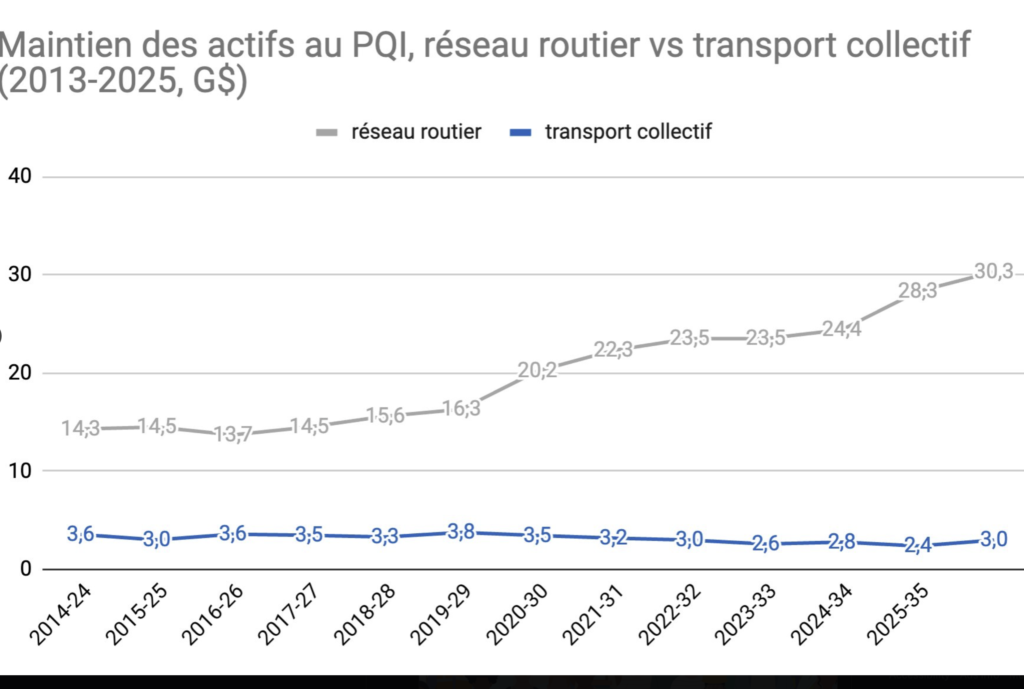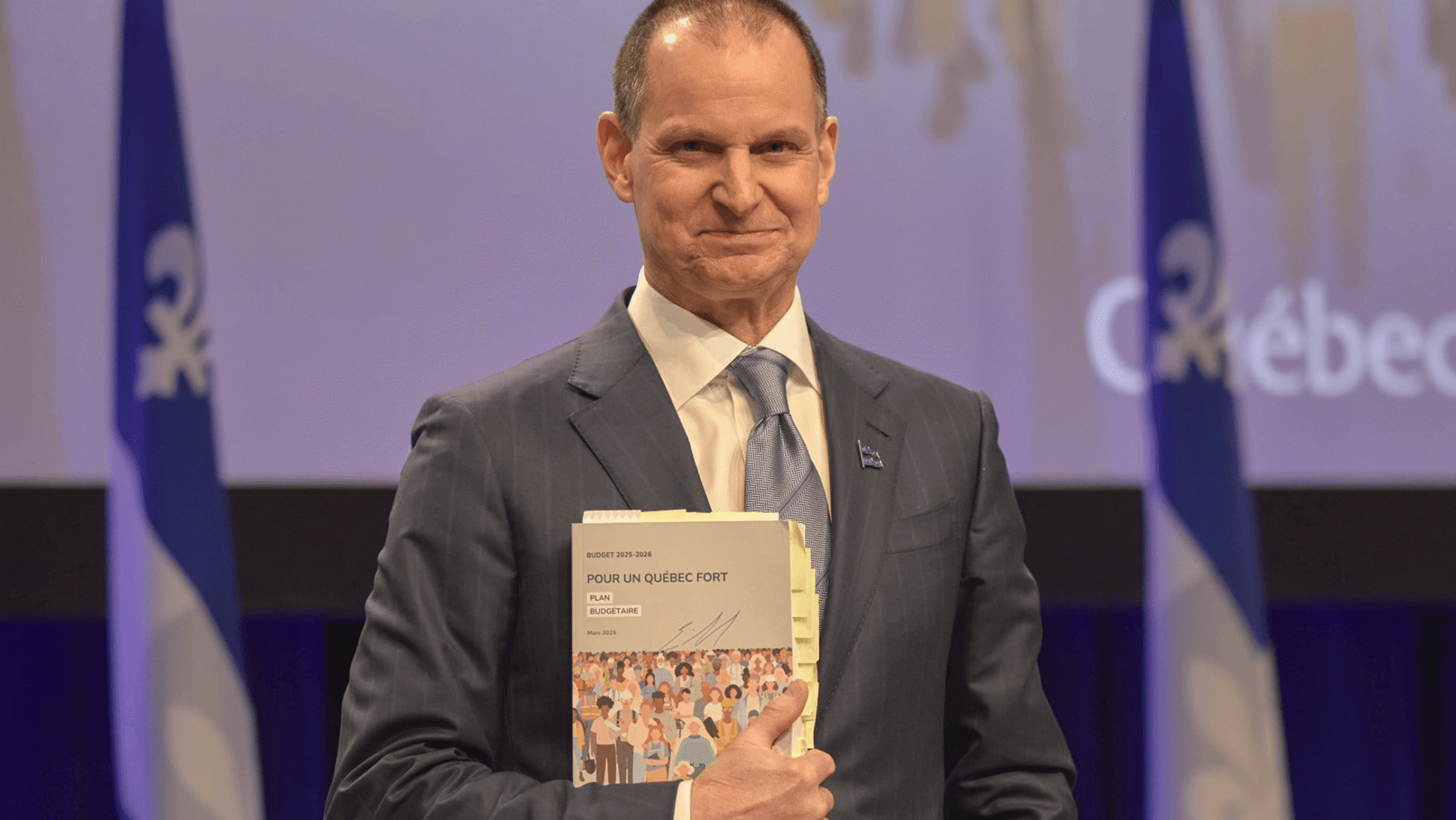At the end of March, Quebec Finance Minister Éric Girard tabled his budget for the 2025-2026 fiscal year. Under the pretext of a “record deficit”, the CAQ is making major cuts to health care, education and public transit. Yet corporate subsidies will increase by several billions.
Record deficit
The Institut de recherche et d’informations socioéconomiques (IRIS) rejects the idea that Quebec is facing a record deficit for the second year in a row. The deficit is estimated at $11.4 billion, or 1.8% of the GDP. In the 1980s, the deficit amounted to 4% of the province’s GDP.
Moreover, Quebec’s debt continues to decline. It stands at 40.4% of GDP, down from 52.6% ten years ago.
Although the debt and deficit appear to be under control, the government is running a fear campaign about this supposed record deficit and intends to implement its plan to reach zero deficit by 2029. To achieve this, the CAQ intends to redouble its austerity measures, as shown by the current budget.
Business subsidies
Minister Girard’s budget includes billions in business subsidies. These include $1.6 billion to support businesses that will be subject to the new tariffs. The budget also includes $604 million to support business innovation.
Education
Education is the sector most affected by the CAQ’s cuts. The projected increase in the education budget for 2025-2026 is 2.2%, while the expenditure required to cover cost increases in the system calls for additional funding of 4.7%.
Despite the outdated state of the school building stock, no increase in funding for building maintenance is planned, nor is there any additional funding for new schools. Instead, the government is providing $95 million for the rental of temporary space. The CAQ therefore prefers renting private space for improvised classrooms to building or renovating schools and CÉGEPS.
Healthcare
In the healthcare sector, the government plans to save money by limiting the use of employment agencies. However, it is unclear whether the amounts saved will be reinvested in the healthcare system.
Overall, the 3% increase in the healthcare budget is less than the 3.8% needed to cover cost increases. So we’re actually talking about a cut in funding.
Housing
No additional funds have been allocated to the construction of off-market housing, despite the housing crisis that has plagued Quebec for years. More than 40,000 Quebecers are on the waiting list for social housing.

Transport
Public transit is also suffering cuts. The government is abandoning the Lachine tramway project and slashing $258 million from the Société de transport de Montréal’s asset maintenance budget.
Some 40% of the Montreal metro’s infrastructure is in poor condition, so reduced funding for infrastructure maintenance could lead to more service disruptions.
The mobilization of workers in the cultural sector over the past year has paid off. The budget of the Conseil des arts et des lettres du Québec will be increased by $317 million over five years.
This increase comes after a year of demonstrations and pressure on the Ministry of Culture by 21 arts workers’ organizations grouped in the Front commun pour les arts.
Union response
With this budget, the CAQ is staying the course and still aims to achieve a zero deficit by 2029. This means we can expect more cuts of this kind in the coming years, despite the increasing needs of an aging and growing population.
At the same time, the union response to the CAQ’s attacks on public services is intensifying, especially during collective bargaining. Just think of the childcare workers, who could soon be on general strike.
However, the gains made in negotiations are being undermined by the government’s successive reforms and cuts. The limited involvement of unions in the political struggle, however, limits their ability to confront these major attacks.

